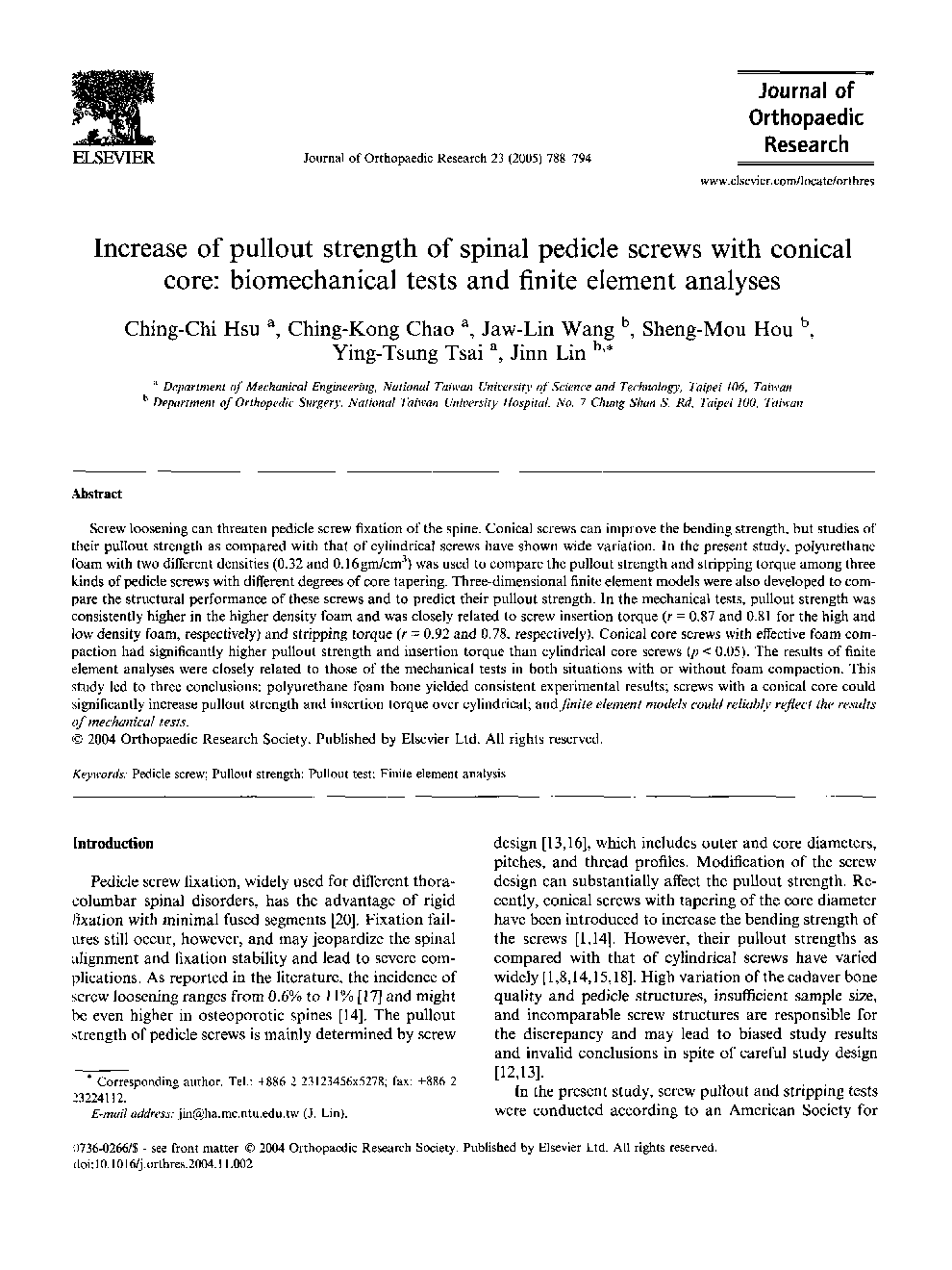| Article ID | Journal | Published Year | Pages | File Type |
|---|---|---|---|---|
| 9353936 | Journal of Orthopaedic Research | 2005 | 7 Pages |
Abstract
Screw loosening can threaten pedicle screw fixation of the spine. Conical screws can improve the bending strength, but studies of their pullout strength as compared with that of cylindrical screws have shown wide variation. In the present study, polyurethane foam with two different densities (0.32 and 0.16 gm/cm3) was used to compare the pullout strength and stripping torque among three kinds of pedicle screws with different degrees of core tapering. Three-dimensional finite element models were also developed to compare the structural performance of these screws and to predict their pullout strength. In the mechanical tests, pullout strength was consistently higher in the higher density foam and was closely related to screw insertion torque (r = 0.87 and 0.81 for the high and low density foam, respectively) and stripping torque (r = 0.92 and 0.78, respectively). Conical core screws with effective foam compaction had significantly higher pullout strength and insertion torque than cylindrical core screws (p < 0.05). The results of finite element analyses were closely related to those of the mechanical tests in both situations with or without foam compaction. This study led to three conclusions: polyurethane foam bone yielded consistent experimental results; screws with a conical core could significantly increase pullout strength and insertion torque over cylindrical; and finite element models could reliably reflect the results of mechanical tests.
Related Topics
Health Sciences
Medicine and Dentistry
Orthopedics, Sports Medicine and Rehabilitation
Authors
Ching-Chi Hsu, Ching-Kong Chao, Jaw-Lin Wang, Sheng-Mou Hou, Ying-Tsung Tsai, Jinn Lin,
